|
In 1933 Hollywood made an amazing King Kong movie. It was black and white and used stop motion with a puppet made of metal, rubber and fur to depict the mighty Ape. In the story, a band of explorers, including a single woman, venture to Skull Island. They find the most incredible creature on the planet, an enormous primate that battles dinosaurs, climbs mountains and rules all before him. He’s all about terrorising the adventurers. Except for Ann, the token woman/bait. He likes Ann. Ann is very unsure about this and screams a lot.
The humans trick, trap and transport the Kong to Broadway and expect to make their fortune. This is a disaster as the opening night audience freaks out, frightening the Ape with their screams and flash photography. King Kong breaks away in a panic and rampages through New York. Eventually he climbs the Empire State Building, snags Ann from her bed through a window (she’s still not into this) and climbs to the top. The Kong stages an epic yet asymmetrical battle with machine gun wielding biplanes while hanging from the building. Eventually he is shot so many times that he capitulates and falls to his doom, but not before he gently places Ann down on the roof to be “rescued” by some dude. It’s pretty tragic. In 1976 they made another one, a remake with big stars. Jeff Bridges is in it. Same kind of deal really, humans pull the mighty creature from Skull Island and everything pretty much goes badly from there. Significantly the Ann in the 1970s becomes sympathetic for Kong and is shocked and sad as the falls to his death. So is Jeff Bridges. Hang with me for the Mother’s Day message, I’m getting there. There was another one in 2005 which looked amazing, had even bigger acting stars and achieved critical and commercial success. The Kong is digitally animated over an actor’s performance and it is quite believable at times. The 05 Kong and Ann seem to become pretty good mates by the end and even do some romantic ice skating type behaviour before he is shot to his death off the top of the Empire. All in all it’s a bad look for the humans who for 90 years have been hoisting a majestic apex animal from its home and tormenting it into a life ending rampage. Still, as a 5 year old I was hooked. I have fairly clear memories, some of my first I suppose, of acting the story out in my lounge room while my mother narrated the sequence of events. One of the couch arms, the high couch, served as my Empire State Building and I climbed, swatted biplanes and bellowed with power. Then I fell to my doom and felt suitably downcast. I believe it goes a long way to describe my mother that she was willing to tell the same tragic story often enough to the same imaginative boy that it is imbedded into my psyche. It goes further to describe her that she also developed the alternative ending which included a daring decent from the Empire and a safe, but still brave, repatriation back to Skull Island. Long live the Kong. And long live mums. Happy Mother’s Day.
0 Comments
I went to watch a professional game of football this weekend. At one point in the middle of the game a 3 way collision unfolded in the corner below me. The ball, a guy in a red shirt and a guy in a grey shirt all rapidly converged on a single nexus. For quite a few seconds these three objects were clearly set to crash together.
It happened and the red shirt ended up prone on the grass with head in hands, the grey shirt spiralled sideways and the ball escaped all harm. This was dangerous and would go on to have consequences for red and grey alike. The piece that interested me was only observable from the grandstand, rather than the couch with the TV at home. I was struck by the almost professional theatre of the following moments as well as the workplace curtesies that were on display. The ball moved away and most of the players continued the game, the closest players to the collision prepared for the combat ritual and one red shirt lay face down with doctors sprinting in. The post collision combat ritual began: the closest red grabbed the offending grey as it began to stand, hands up in recognition of wrongdoing. The red shook the grey to express displeasure at the contact and injury to their teammate. The next closest grey grabbed the red and shock it in retaliation for the retaliation. Finally, another red joined in and everyone shook everyone for a frantic 10 seconds. The game was still going on so all the shirts decided to go back and join in. The interesting piece was that they all kind of helped each other up. The offending grey pulled a red to its feet and gave it a respectful double pat on the butt. The grey then jogged over to the injured red, who was now up and walking off the field. They had a hug and a chat. Presumably a “sorry mate” and a “no worries mate” were exchanged. It was as though the grey didn’t want to return to the game before the red could be replaced. Meanwhile the game ragged across the field. The medical staff and the big red cleared the field, grey ran over to crash back into the action and the professionals all returned to work. It seems a very unique workplace out there. They are playing a game they love, which clearly engenders joy and fun, and also carries great risk of physical pain and injury. They are bound by a code of behaviour that requires them to fight, hurt and dump each other on to the ground and to also help each other up from the ground. People really, really care about what is happening out there, to their tribe, their brothers, their shirt colour. They then also move to the other coloured shirt sometimes at the end of the season. I wonder how confusing it is to live in the midst of such passion and profession within their game, the world, their job? I went out sailing on the weekend with a 6 year old in very light winds. So light that we become marooned in the harbour with only the tide to ever so slowly drift us away from the shore.
We eventually had to get towed back in by a very kind man on his very fine yacht. Thank you Honeysuckle. Anyway, you know what gag kills with 6 year olds? This stuff: Row, row, row your boat gently down the stream, Merrily, merrily, merrily, merrily, life is but a dream. Row, row, row your boat gently down the stream, If you see a crocodile, don’t forget to scream. Arrrggh. Row, row, row your boat gently across the lake, There’s some ducks over there, watch out for the drake. Quack! Row, row, row your boat gently up the river, If you see a tiger there, you’re going to feel a shiver. Raw! Row, row, row your boat gently across a pond, What’s that hiding over there behind the palm fronds. Yikes! Row, row, row your boat out towards the dam, If you see a hippo there, look out for the slam. Chomp! Row, row, row your boat out into the ocean, What’s that moving under there, look at that motion. Shark! I’m at the nationals championships this weekend and I’ve completed the following personal history for my own interest. I did it by memory first and then went back to check the records, and a few other people’s memories. Unsurprisingly there were plenty of discrepancies and holes to be found. I still can’t work out if I played in 07 or not.
I do harbour mainly positive feelings about the whole journey. Some of the injuries are a shame, but the adventures, the victories and defeats all seem worth the time and endeavour. Over the last 22 years I’ve played in 14 Open division National Championships, 7 for Brisbane teams, 1 for Canberra and 6 for Colony/Sunder. I’ve won it once. I’ve lost it twice. I’ve had final placings at almost every spot from 3rd to 10th. And tomorrow I’m playing in the final. What a joyful struggle it’s been. Here is the list of National Championships that I’ve found very enjoyable to recall: 2003 Canberra, first Nationals - Moreton Bay Buggers. 4th place. 2004 Brisbane, second Nationals - Moreton Bay Buggers, lost a quarter, 7th place. 2005 Took the season off to do Uni and life type activities. 2006 Sydney, third Nationals - Moreton Bay Buggers, finished behind other Brisbane team, 10th. Yikes! 2007 I have no memory of the nationals season in 2007. 2008 Coffs Harbour, fourth Nationals - Firestorm. Very muddy. 9th place. 2009 Perth, fifth Nationals - Firestorm. I came a day late due to work. The team had a bad day 1, were eliminated form the medal bracket and had to fight back through the remaining play. Due to the draw I didn’t lose a game that tournament and we finished 5th. 2010 Took the season off to travel to a super strange medical centre in Reno. NV. 2011 Brisbane, sixth Nationals - Firestorm. Lost a quarter final. 6th place 2012 I didn’t play due to the ongoing disaster of Stacy’s illness. 2013 Bendigo, seventh Nationals - Firestorm. Lost a quarter final to Chilly, the game winning throw into the endzone went over my head just out of reach. Finished in 5th. 2014 Sydney, eighth Nationals - Fyshwick United. Lost the final. 2015 Perth, ninth Nationals - Colony. Lost a semi final to Mammoth, shocker, we had a stacked Dingo O line. 3rd place. 2016 Ballarat, tenth Nationals - Colony. Won the tournament for the first time. 2017 Gold Coast, eleventh Nationals - Colony. Calan got hurt and we lost a close quarter finals. Poor 7th place finish. 2018 Gold Coast, Colony. (non-WUCC) Broke a rib and radius in the build up. Didn’t attend the tournament. 2019 Townsville, Colony. broke my hand before the tournament. Yelled from the sideline as we lost the final. 2020 cancelled. 2021 Canberra, twelfth Nationals. First season of Sunder (Rebrand of Sydney Colony). 3rd place. 2022 I took the season off to be with the baby 2023 Ballarat, 13th Nationals - Sunder. Lost the final. 2024 Ballarat, 14th Nationals - Sunder… It’s the end of a school term and I’m reflecting on three good months. Most of my classes are going pretty well, I wrote and delivered a new unit and assessment task for the year 12 group. They tried hard with their end of term project. I’ve encourage a dozen students out onto the harbour and helped them consider who they are in moments of challenge and obstacle. I’ve built good relationships with new teachers to our school. Yeah, it’s been a good three month of work. Not all easy but I’m pleased.
I was driving home this week ruminating on the time and I got to thinking about how in a similar amount of time, a season of 218BCE, Hannibal Barca crossed the Italian Alps, with 50000 soldiers, a baggage train of equipment, supplies and treasure, a few thousand cavalry, while fighting native tribes, and managing 37 North African forest elephants. It’s recorded as one of the great feats of ancient history, so completely unthinkable that the Roman legions stationed in the north of Italy to protect against Hannibal left the roads down from the Alps completely unguarded. There is an account told that on the passage down into Italy, the pass or track was totally inappropriate for wagons and pack animals. The cold, exhausted and frightened soldiers had to use fire to melt the ice in order to cut steps and a path into the mountain. To get the elephants down. The North African war elephants. They did it though, they crossed the mountains while being shot with arrows from the hill tribes and freezing their North African hides off. It took a few months. Now that’s a good term of work. Then Hannibal and his armies spent 15 years completely terrorising Rome and Italy. The whole thing leaves me with a sense of ground to make up. I better have a strong term 2. Take away dinner tonight!
No cooking, only a little cleaning and all the culinary delights of Sydney’s Inner West just a button tap away from delivery to our house. What shall we have? Pizza? Curry? Whatever we want? I ordered from a place with a good rating and a reasonable delivery time. Uber Eats knows my credit card, it’s all very streamlined. I’m instantly and intensely connected with the world. So are you. We all are. Anyway dinner was great, super tasty and kind of fresh tasting, we went with all vegetarian and it was a win; light, you know? Dani really liked it, I could tell because she said “this is great, really great actually. Where did you get it from?” And this is the moment that I realised I’m actually not connected with the world, I’m disconnected. I had no idea of the name of the restaurant, the location of the restaurant, the people who worked there or anything about it. Perhaps that’s just me not paying much attention to those details as I ordered. Or perhaps that’s how it is a bit now. Disconnection wearing the cloak of connectivity. Good dal though. From somewhere. This is Evie. She’s almost 17, which, I believe, is over 100 in translated human years. She can’t see much, she can’t hear much, she hasn’t heeded an instruction I’ve given her in the last 21 translated human years. I suspect she’s approaching a similar number of daily sleep hours as a Central American three toed sloth. Sometimes these days I come home, bustle in the front door, dump my bag next to her bed, trundle down the stairs, gather up some items and head back out the front door to cello practice and she doesn’t even wake up. She sleeps in her bed in the lounge room, she dozes in the sunny stretch of the deck, she snoozes on the square couch next to the kitchen dinning area. Occasionally she roams the spaces between. This week there were pork and chive dumplings for dinner. At one point a half dumpling was accidentally nudged from the table. It drifted in a salty arc to the floor and landed with a delicate ‘shlopp’ sound on the timber floor. Evie pounced upon this morsel like a wolf pack of one. Erasing its existence out of sight and memory before its absence was properly noticed. I’m beginning to think this whole getting old situation is a clever new ruse in a long line of snack stealing manoeuvres. The cunning old dog. New tricks indeed. For the dog lovers out there, here she is almost 10 years ago as a 6 year old. The following is a fairytale I read to a child this week. A child. From a book of children’s fairytales. It was as blunt and bizarre as this retelling.
The Three Little Birds. There is a powerful King out riding through the realm with a whole crew of impressive attendants. Three delightful sisters spot them and take turns exclaiming to each other: “I think the King is fabulous”, “well I think the rider on his right is the finest”, “sure but to me the rider on the left is the best”. So in many ways it’s quite neat. The King manages to hear this exchange and bails the three sisters up at the feast that night. “Do you really think I’m great?” He asks the first, and most delightful sister. “Oh yep” she replied. So that settled that and there were 3 weddings without delay. 9 months later the King goes on a hunting trip, the Queen is pregnant, her sisters have turned violently against her and when she gives birth to a lovely boy, and heir to the throne, the sisters take the child and throw him in the river. Hectic turn in the story! You also need to know that immediately after the river throwing, a little bird rose up and sang a spooky song in a human language to the sisters. They were freaked. The King come back, they told him his wife gave birth to a literal dog, “which we chucked in the river”. The King brushed it off and started planning his next hunting trip. Meanwhile a fisherman was down at the river and rescued the helpless child. He and his wife had always wanted a child and they took the babe in. Now, because it’s a fairytale and we need some pattern build up for the morals to hit home, the whole thing is repeated: hunting trip, baby, dodgy sisters, river, haunting bird song and the fisherman’s family growing. The next year it’s all the same except this time it’s a girl, which is called a cat by the inexplicably cruel and false sisters when they explain the whole river thing again to the King. By this stage the King’s had enough - Queen to the dungeon and three kids in the fisherman’s house. Alright that’s the set up for the strange stuff that’s coming. I know, right! The story now slam cuts 15 years into the future, Queen still in the dungeon, kids growing up great, starting to ask some questions though. When the fishermen lets slip that he found them all in the river, the eldest boy goes out into the world to seek his parents. He searches long with little luck, but a mystic old woman kind of helps him at one point by carrying him over a lake. Still, no good finding dad. A year later the second son repeats the search, including cryptic lake lady who knows they’re searching for their father. Finally the daughter heads out to search, she meets the old lady who gives her this totally hectic series of instructions: “take this wand as far as you can along this road until you find a castle, watch out for the big black dog on the road, ignore it. Put the wand down on the castle step, go through the castle into the backyard, you’ll find a fountain with a tree in it and a bird in a cage in the branches. Get the bird, get a cup of fountain water, come back out and get the wand. Then go to the dog, hit it in the face with the wand and come back to me.” The daughter likes the sound of all this and goes for it. On her way back from the castle, before the dog, she finds her brothers, no dramas. Then she swacks the dog with the wand who instantly turns into a handsome prince. All four of them head back to the woman who is pumped. She carried them across the lake a final time then disappears as “she is free”. We don’t know from what and she doesn’t return to the story. They head home to the fishermen’s house, put the caged bird on the wall and the cup of fountain water on a shelf and relax. Except for the middle son who heads out to the forest. He bumps into the King who’s back hunting, again. He loves it. The King notices something about the young man and accepts an invite back to the fish house. Suddenly the bird in the cage starts singing a song that reveals the whole mystery. The King, his three kids, the handsome price and the cup of fountain water all head back to the castle to release the mum who’s been in the dungeon this whole time. She’s super sick after all these years but the cup of water instantly cures her. Brilliant. That’s pretty much the end. Jarring right? I’m going to quote the final line of the story directly as I think it perfectly reflects the blunt intensity of the story. “But the two false sisters were burnt, and the daughter married the prince.” Sleep well my darling. That was a strange week. Yeah, a bit strange actually. I replaced my normal routine of work, training, sailing, general familying with watching my 2 year old be sick for a week.
This involved all the usual business; a bit of wiping up, some cleaning up, frequent picking up and 1 day of sponging up. The reason it felt strange was the uncertainty that settled over the times in between the caring action. For much of the week I was just here waiting for the next thing to do. Extended moments of inaction between the busy times of child wrangling. It meant I struggled to get any momentum to get things done when I did have time. It was a bit like a crappy holiday from my normal life, lots of time with nothing demanding to do, but no real impetus to fill that time with things I could do. Also there was a cranky little person there. It wasn’t all bad, between the cough and the fever phases, sometimes we had fun. Certainly though neither of us would chose to do it all again. I’m not tired or too worn out, however I’m keen to get the routine of a week back. I found it uncomfortable to drift through, the structure of a familiar week with a known busy grind sounds desirable to me. It wasn’t hard really, but it was strange. Bring on Monday. The other day, it was International Women’s Day, and what a day it was. Blue sky, sun shining, the promise of equality in the air. My school generated these digital posters as a part of a series for the day. She would have been 41 and probably still trying hard.
|
AuthorHigh school teacher Archives
September 2023
CategoriesThemes |
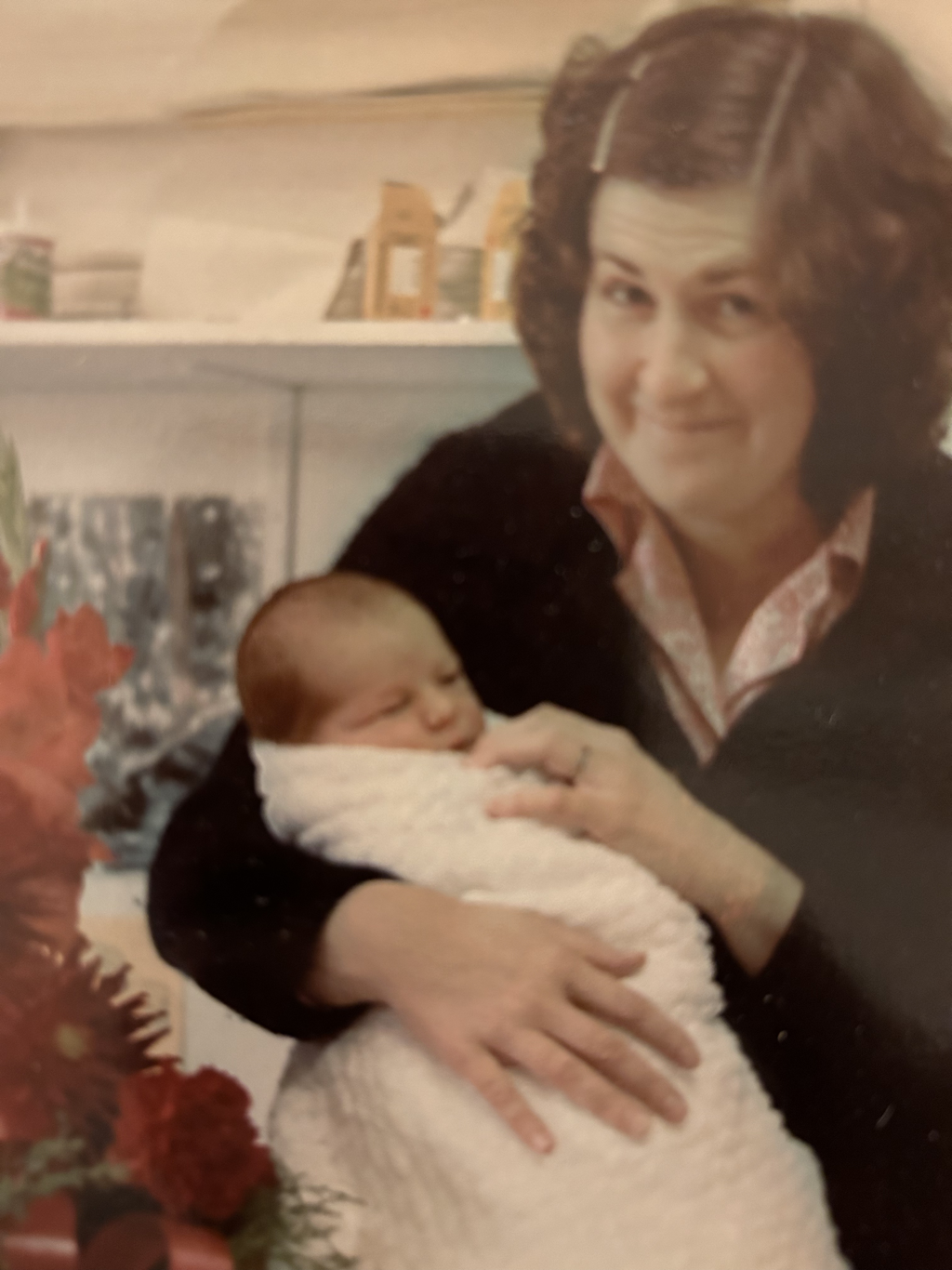
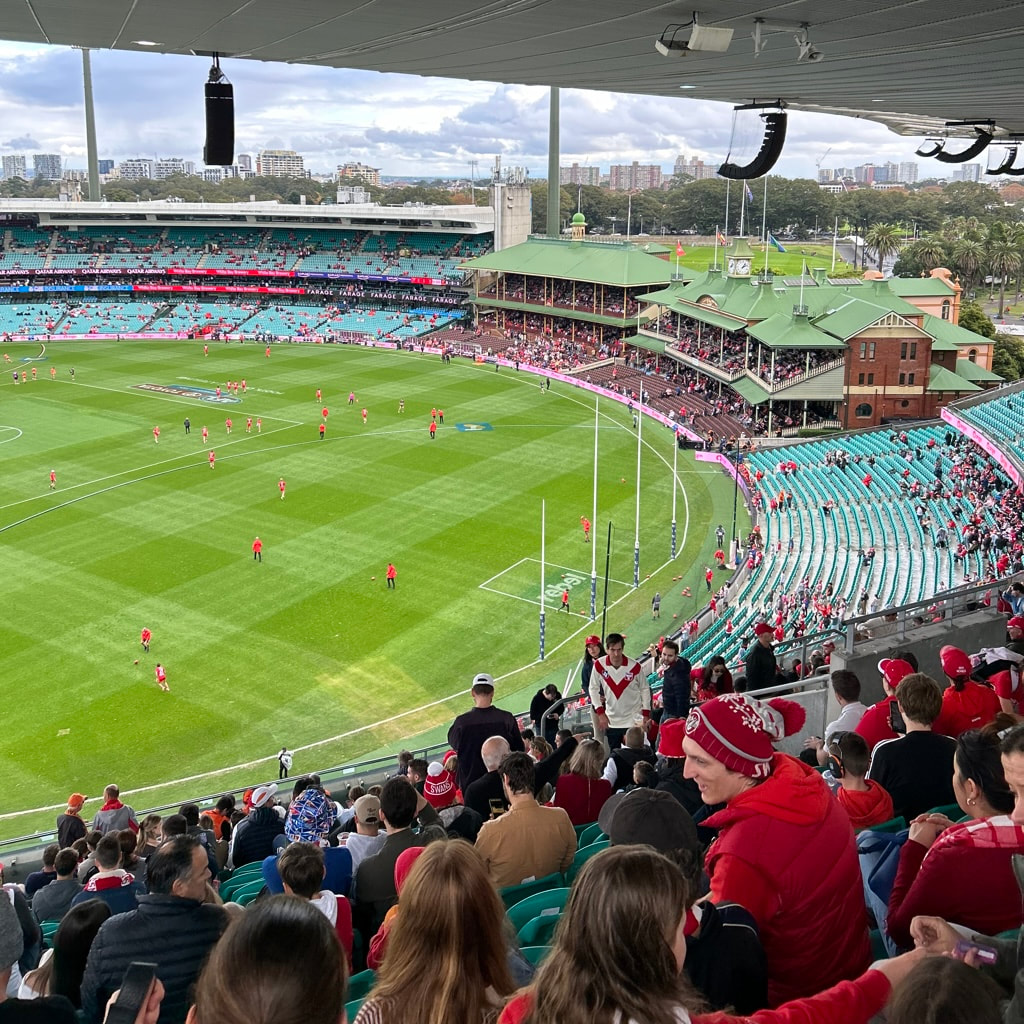
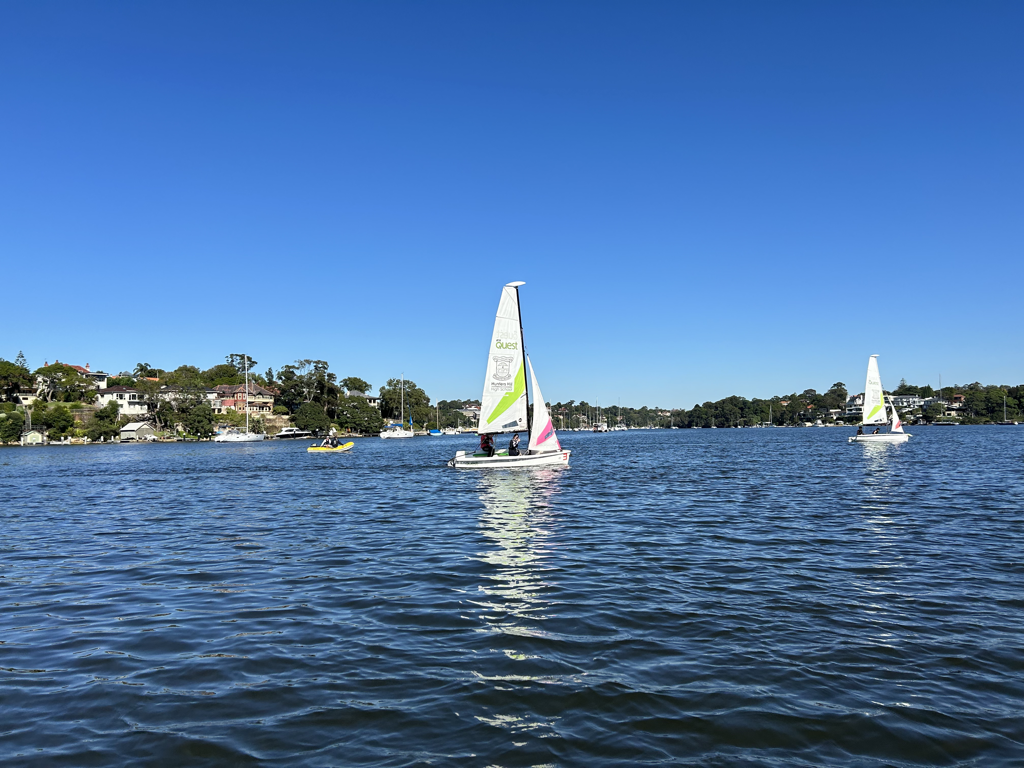
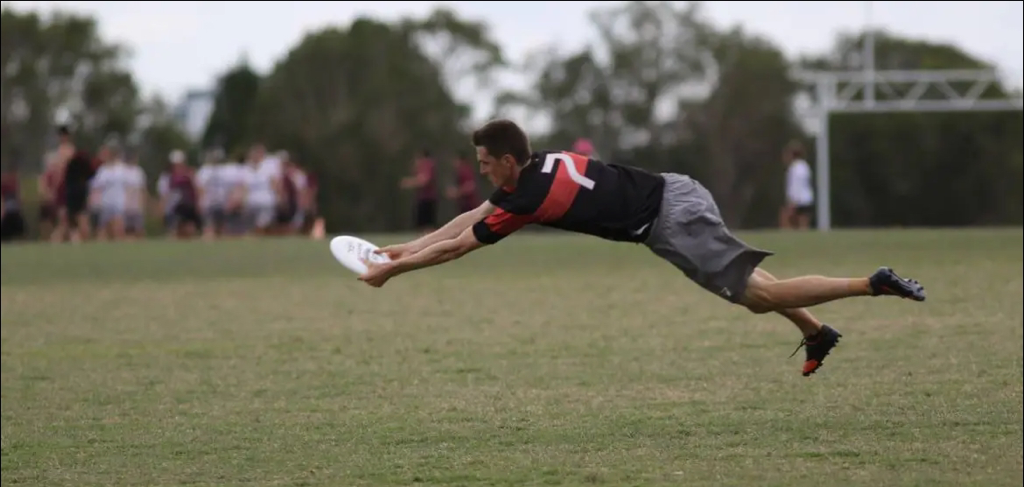

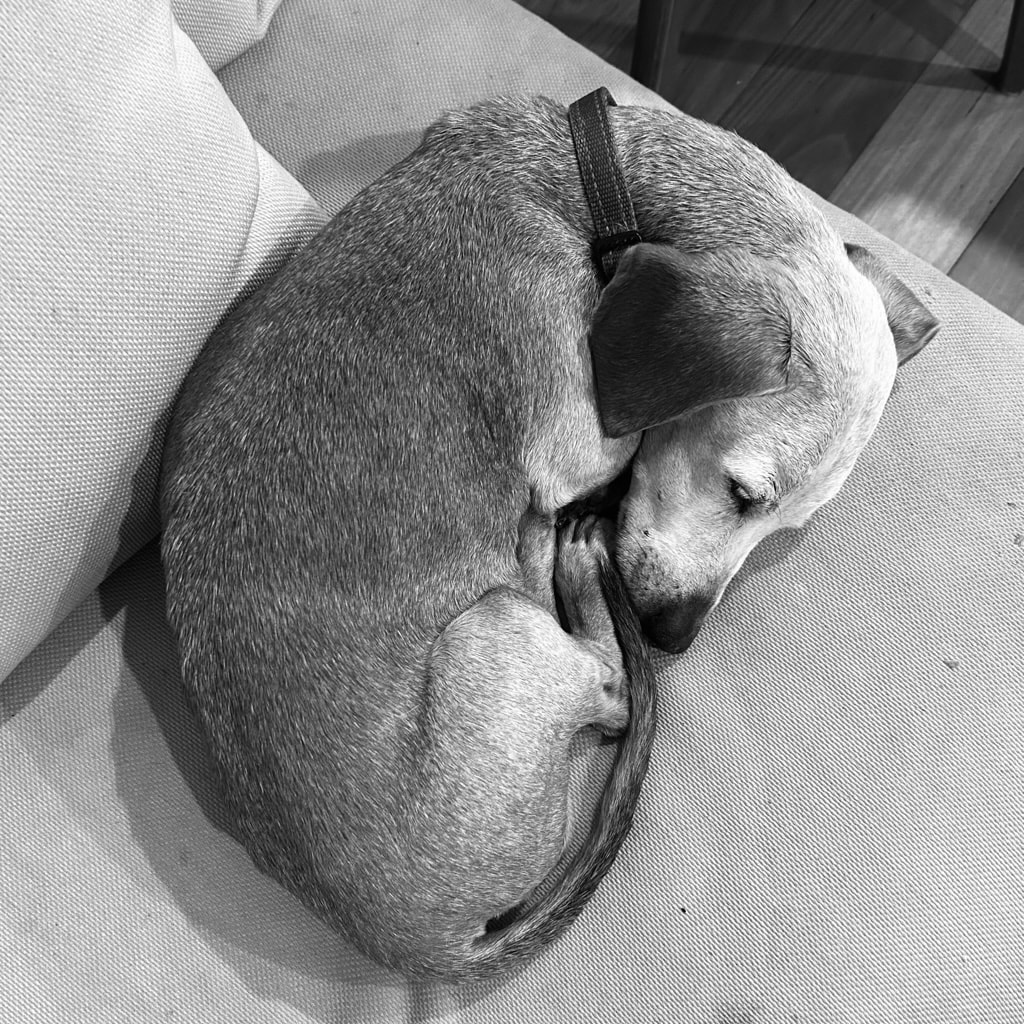

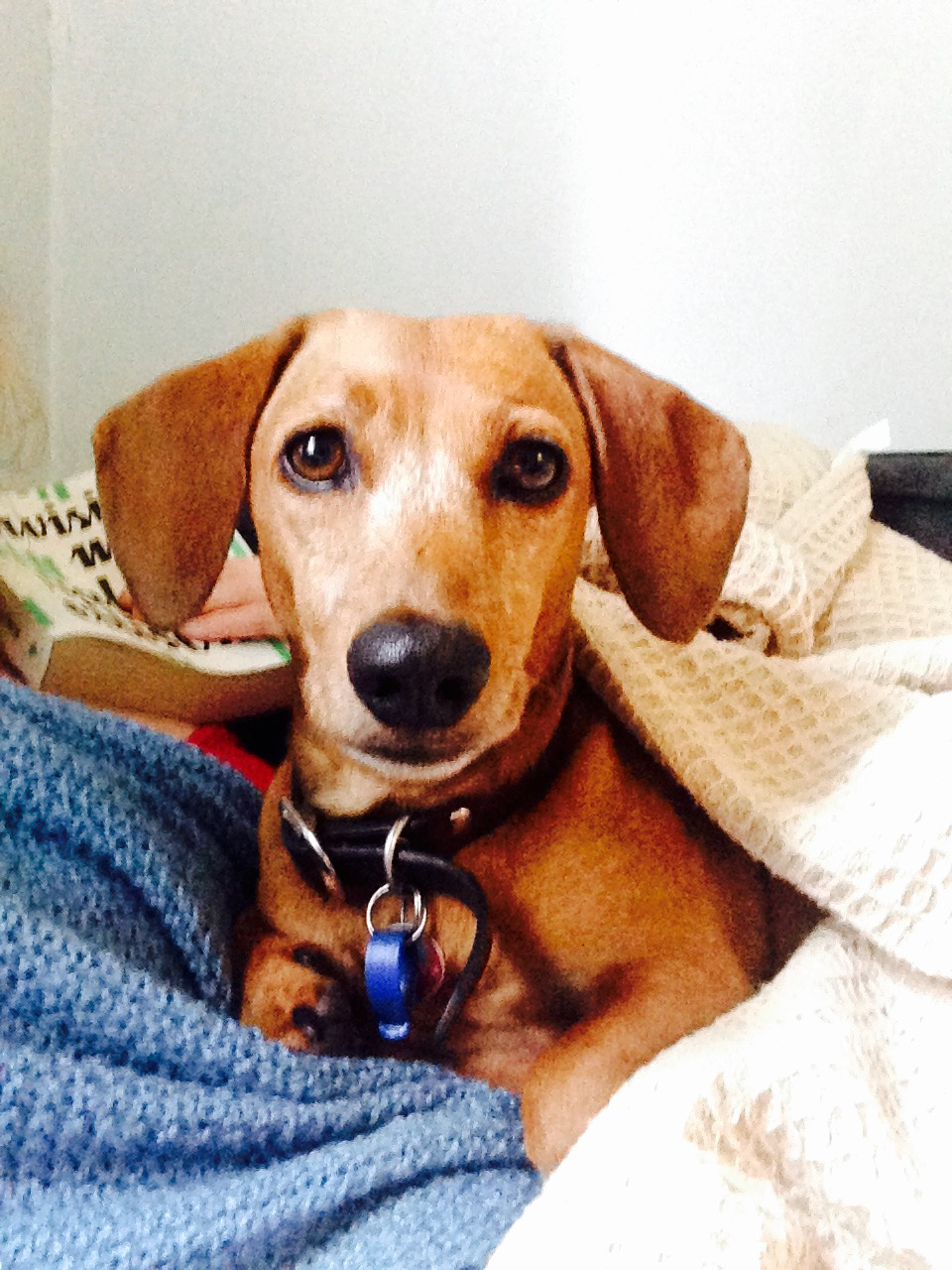

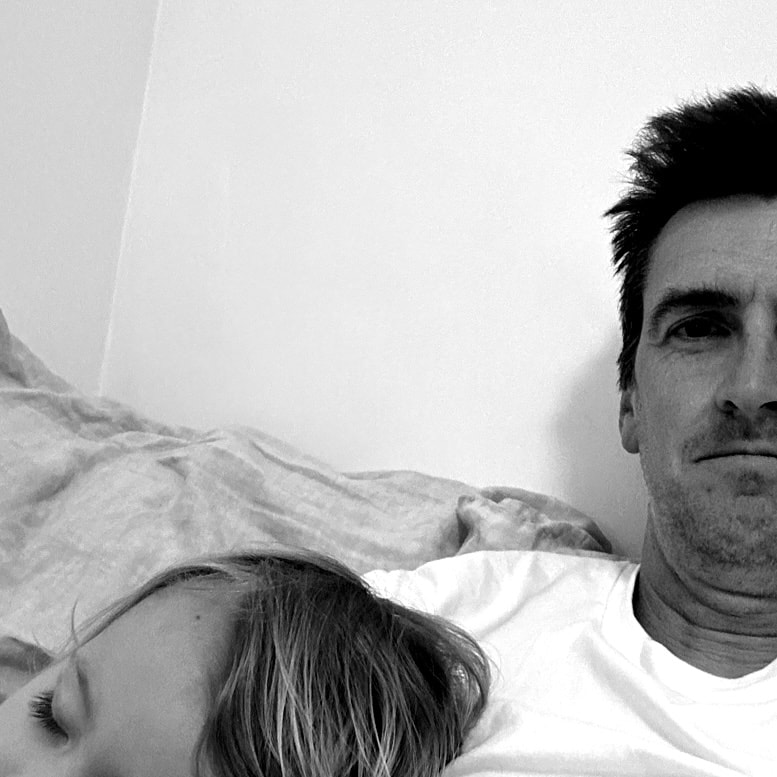
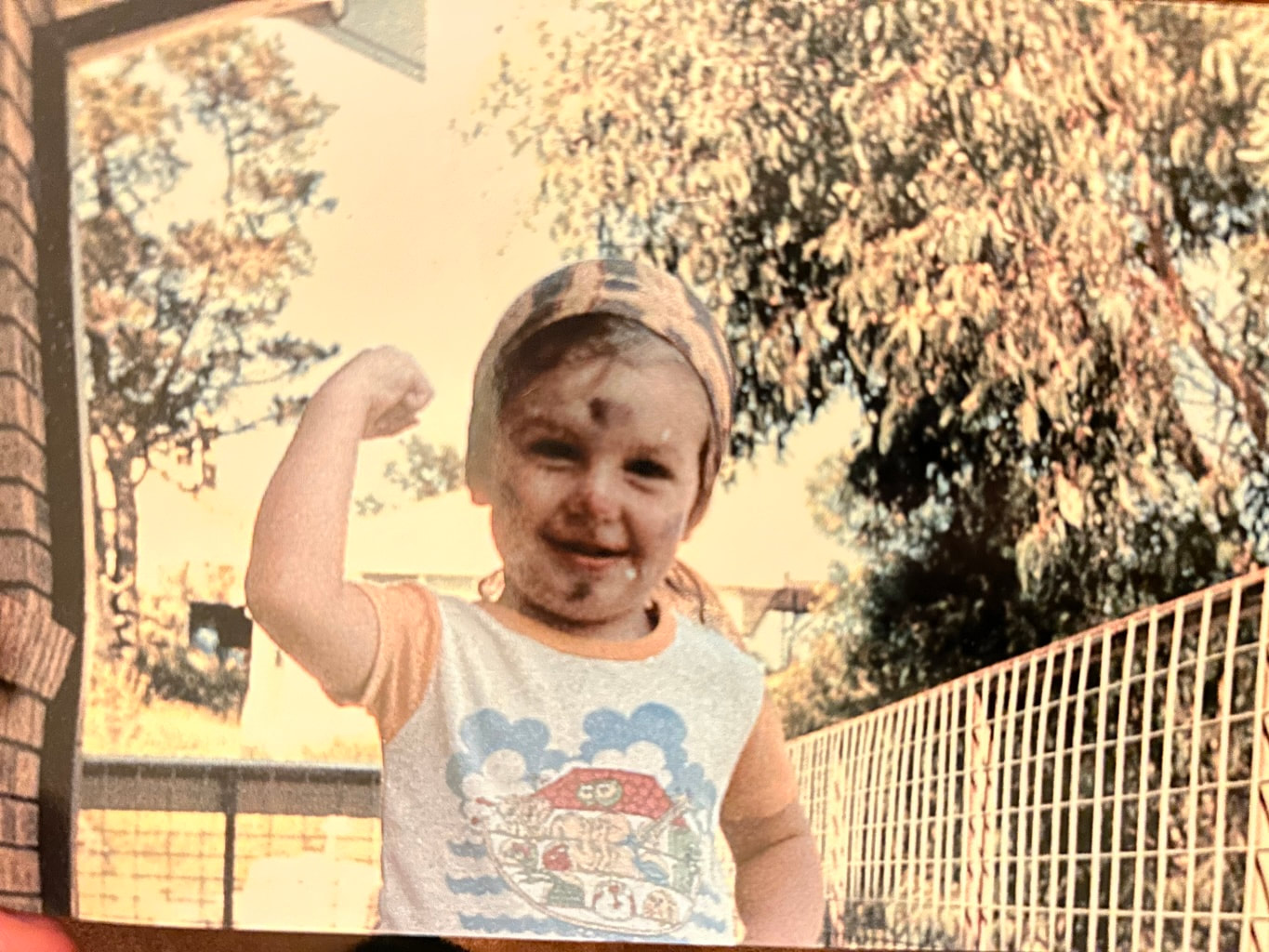

 RSS Feed
RSS Feed
